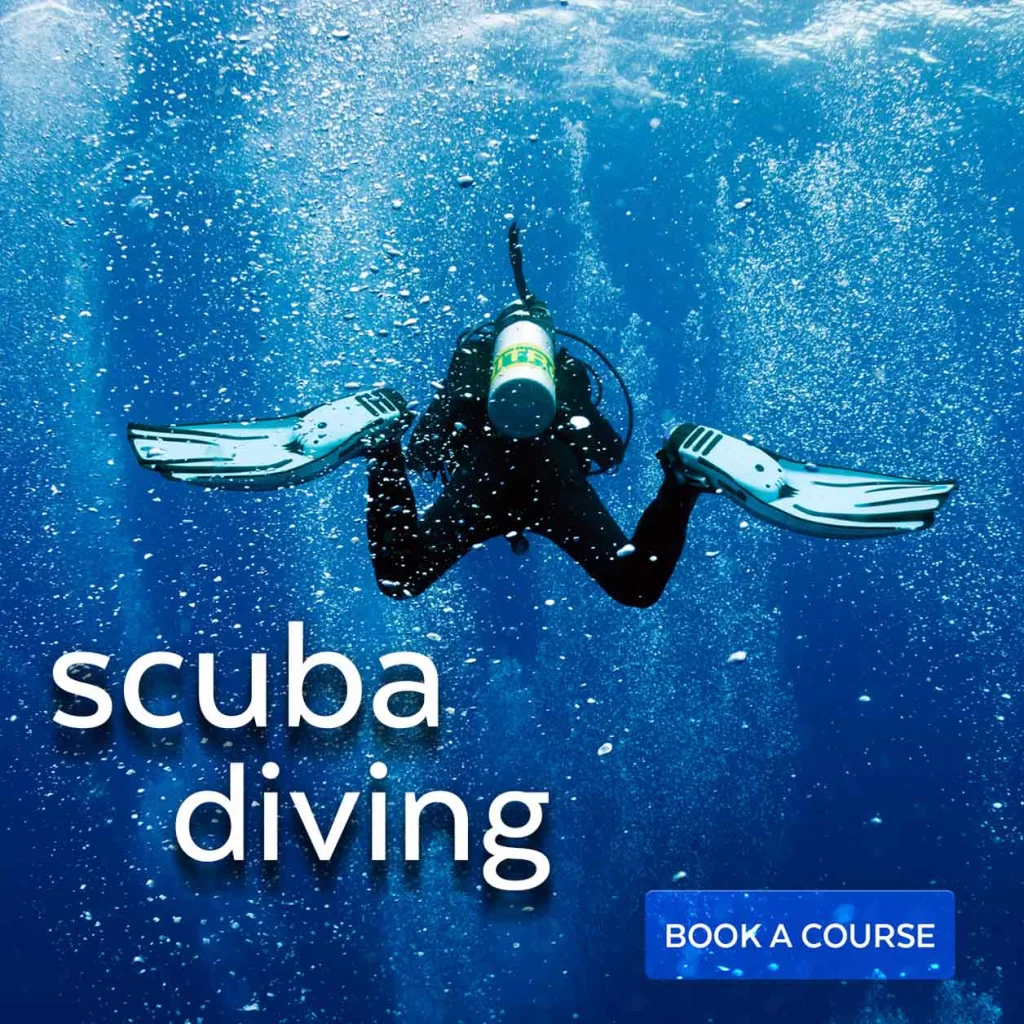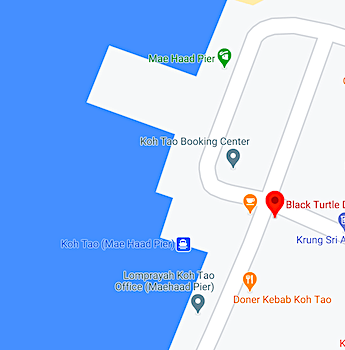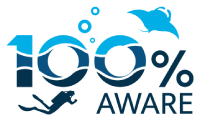Marine Conservation Internship on Koh Tao
Core Conservationist – Marine Conservation Internship in Thailand
If you are short on time, but would like to complete a Foundational Marine Conservation and Reef Ecology Internship, then our Core Conservationist Internship may be the right choice for you.
Our Core Conservationist Internship is scheduled over 7 days and is perfect for driven and focused individuals, who wish to maximise the time they can stay on Koh Tao, and participate in a great value educational experience.
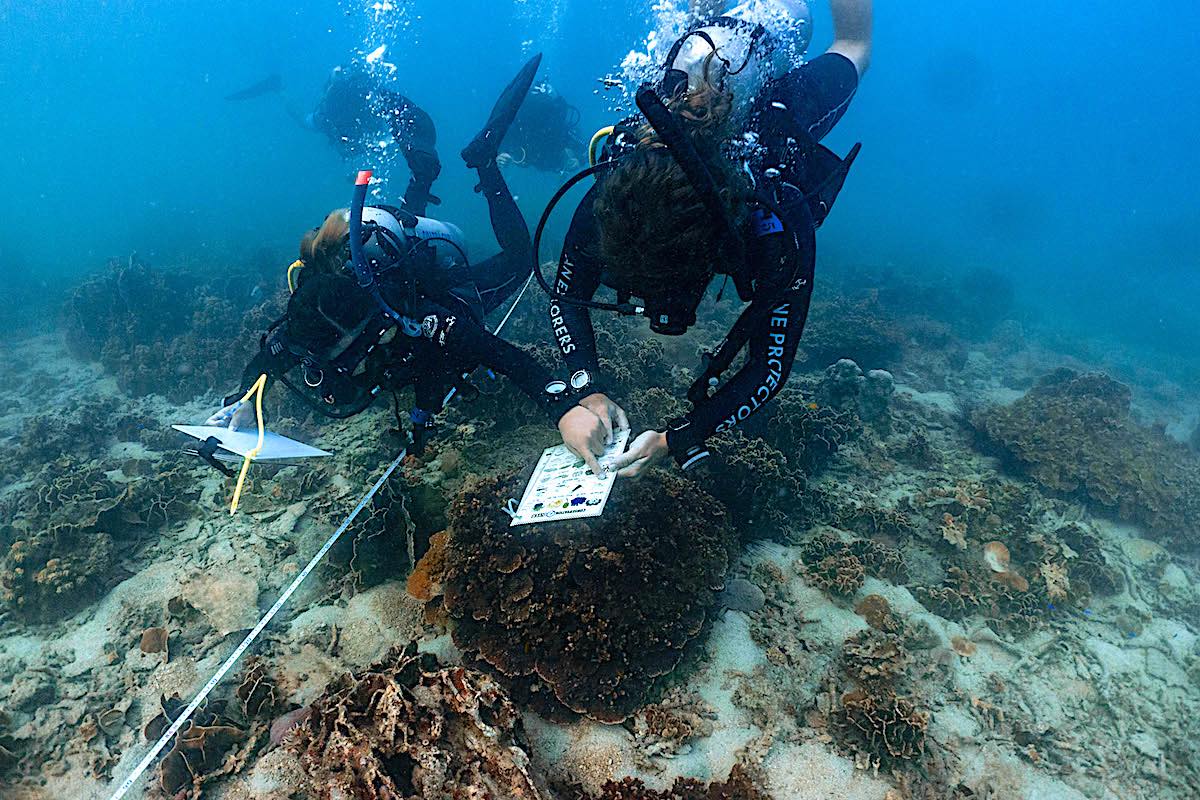
7 Day Marine Conservation Internship
Our 7-day Core Conservationist Internship is a fantastic introduction and valuable Internship for scuba divers who want to educate themselves more about the marine environment.
This shorter marine conservation internship serves as an excellent pre-cursor for students who are planning to continue their education in the marine science, ecology or marine ecosystem sectors or for those who want practical field experience.
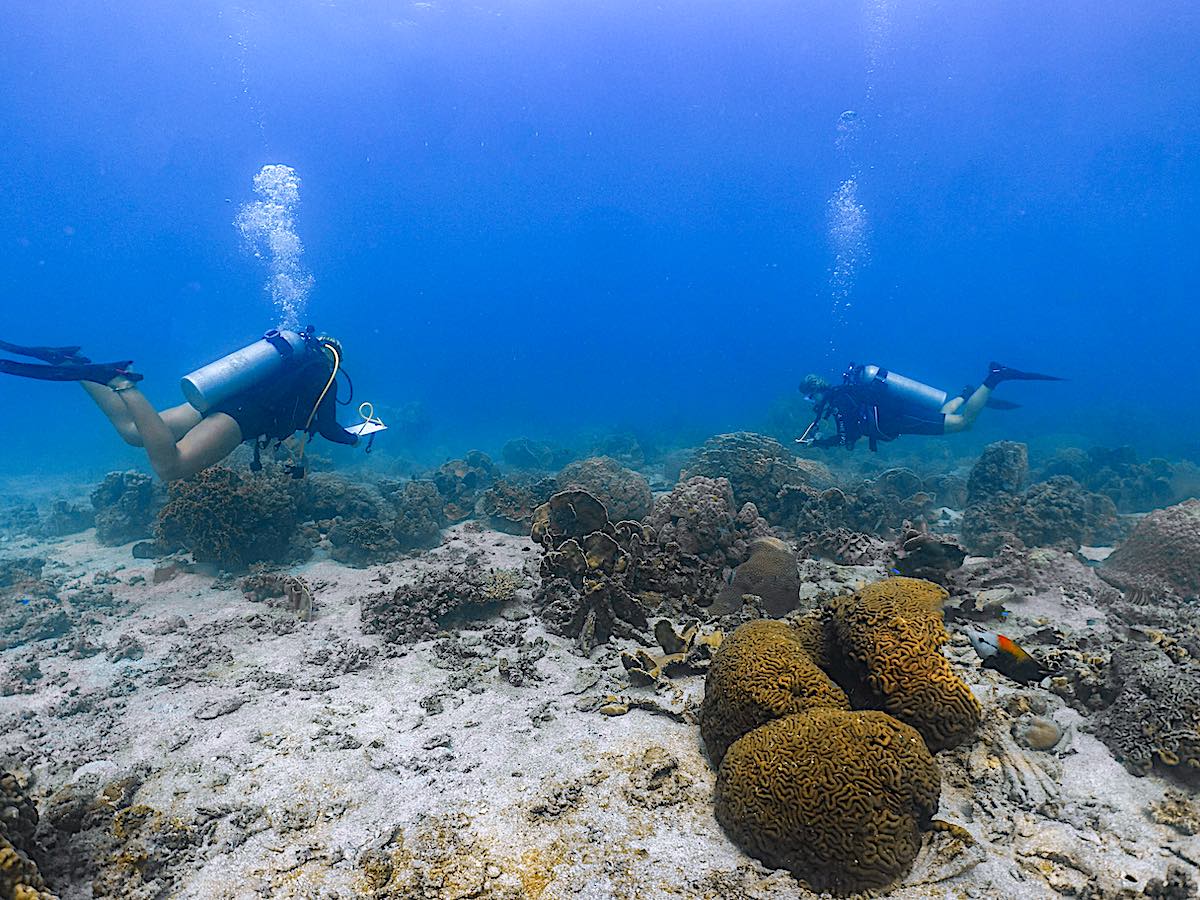
Introduction to Fundamentals of Coral Reef Ecology
The Core Conservationist internship introduces you to the fundamentals of coral reef ecology, the marine organisms that live on and around coral reefs, and the important roles these organisms perform that contribute to a healthy reef.
You will learn how to view coral reefs from a scientific perspective using key biotic and abiotic reef components.
You will be able to identify key fish and invertebrate indicator species, substrate types and coral growth forms and assess coral health and identify coral diseases.
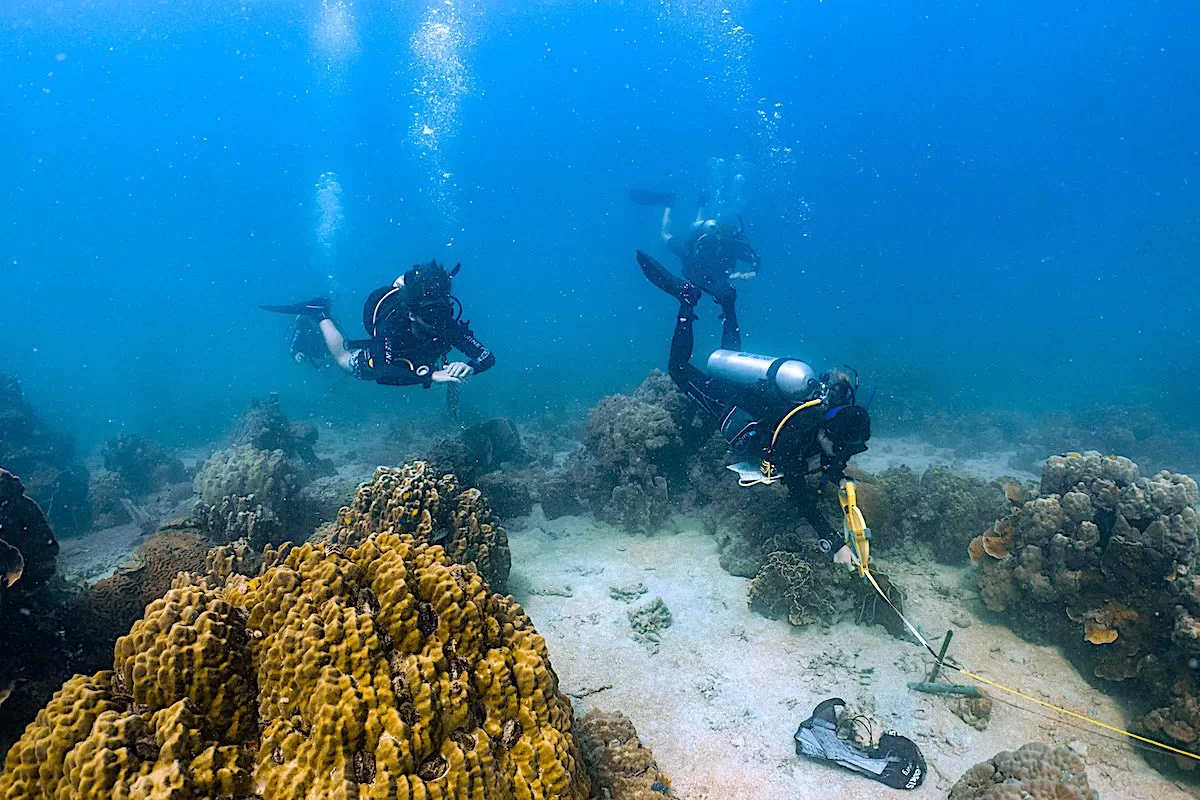
What are Threats to Coral Reefs
You will learn about the threats the natural coral reefs and marine environment face, due to a number of factors including climate change and pollution.
We will look at how climate change is affecting coral reefs. You will learn how corals exposed to prolonged periods of high-water temperatures become stressed and expel the symbiotic algae living within their tissues called zooxanthellae.
It is the algae that provides coral with the essential nutrients through photosynthesis that gives them their vibrant colors and vital nutrients. However, under stressful conditions corals lose their algae resulting in a pale or bleached appearance.
You will learn how to use the Coral Health Chart as a monitoring tool, enabling you to identify coral health and record the data. You will also be shown how to submit that data to a citizen science database.
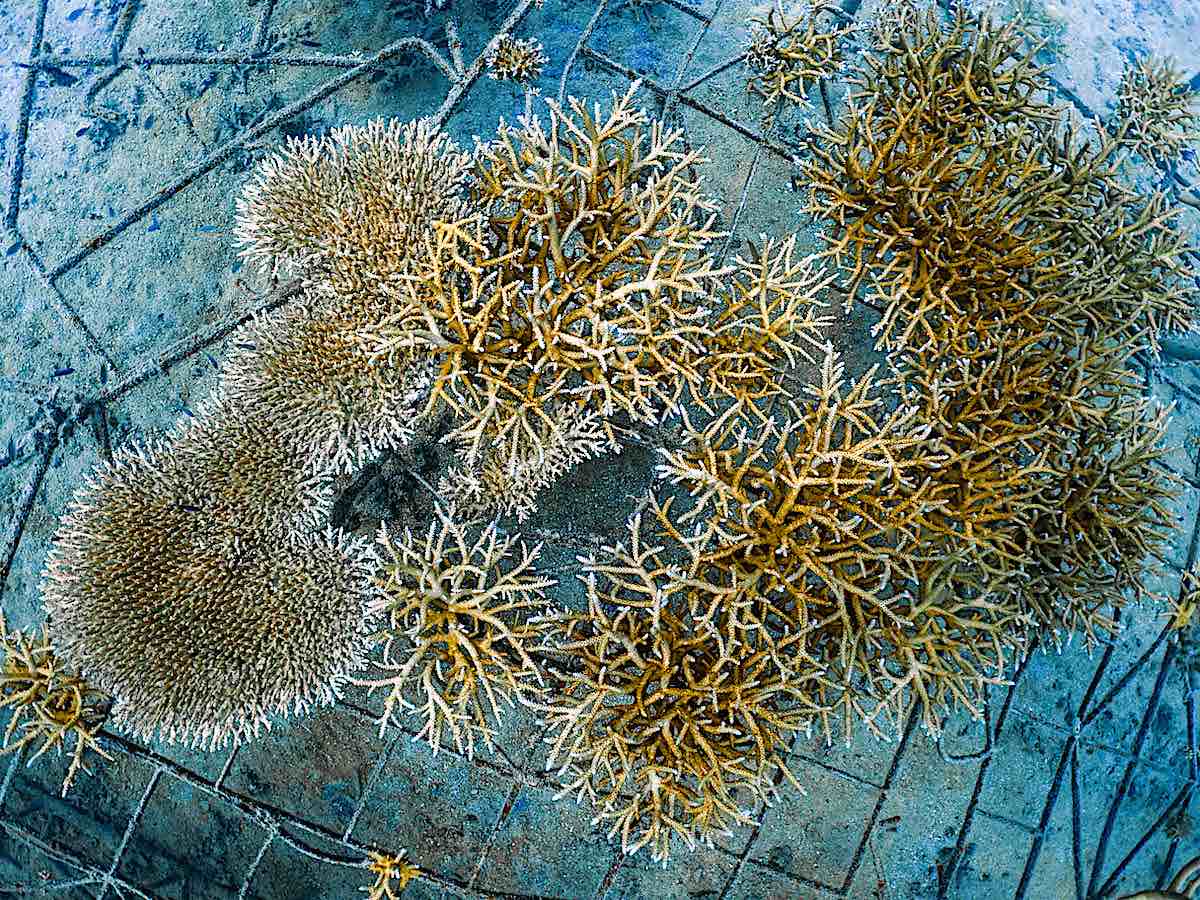
What is Coral Restoration?
The Core Conservationist marine conservation internship will also introduce you to Coral Restoration Theory & Techniques.
Black Turtle Dive is a DMCR – Department of Marine Coastal Resources – authorized coral restoration training facility, and we work alongside the DMCR (Department of Thai Government) on two legally binding coral restoration projects on Koh Tao.
You will learn the theory and practical application of established coral restoration techniques, including using coral nurseries, and also learn how to conduct a Monitoring dive to collect data on the health, growth and diversity of a coral nursery.
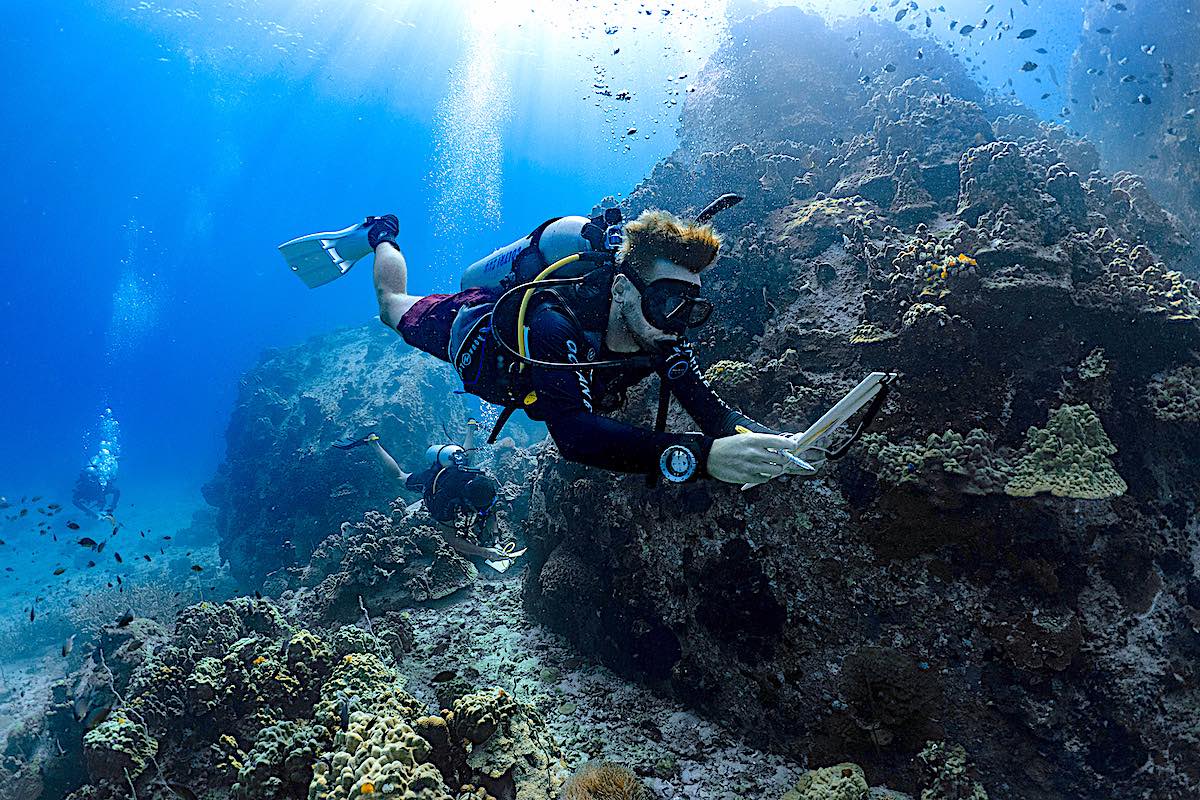
BOOK NOW 30,000 THB
The Plight of the Sea Turtles
During the Core Conservationist marine conservation internship, we study the plight of the sea turtle and look at the variety of threats, both natural and human-caused that put their populations at risk.
We explore how to recognize the threats to sea turtles and how we can alleviate some of the local threats to their health and survival.
You will also learn about sea turtle ecology and their incredible evolutionary history.
We will also teach you techniques to identify and track sea turtles using photo documentation and show you how sea turtle sightings are coded and recorded on our local database.
Upon successful completion of the Core Conservationist Internship, students will have a good overall understanding of coral reef ecology and the marine ecosystem, and the threats coral reefs face.
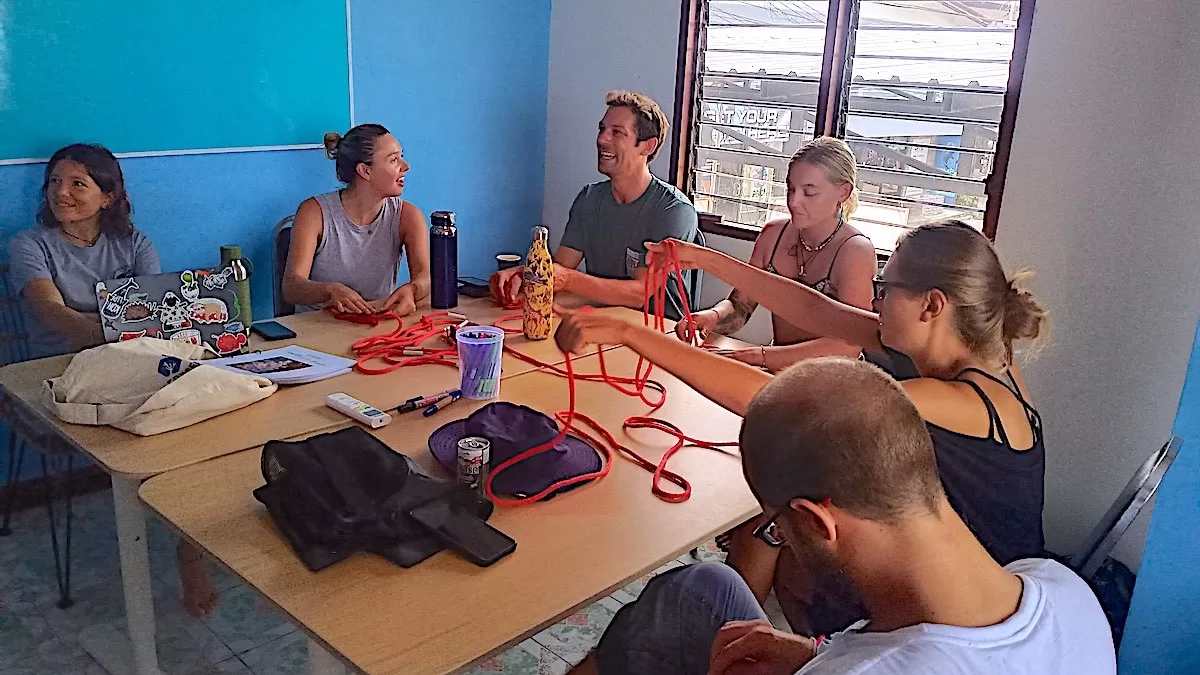
Core Conservationist – Marine Conservation Internship Modules
The academic, workshop and practical modules you will cover in the Black Turtle Dive Core Conservationist internship program are:
- Marine Ecology & Coral Reefs
- Scientific Diving
- Fish Identification
- Substrate composition
- Invertebrate Identification
- Ecological Monitoring Program
- Coral Health Monitoring
- Coral Restoration Theory & Techniques
- Coral Gardening Dives
- Sea Turtle Ecology & Monitoring
Each module has classroom components that include quizzes and exams. There is also at least 1 Open Water training session attached to each module.
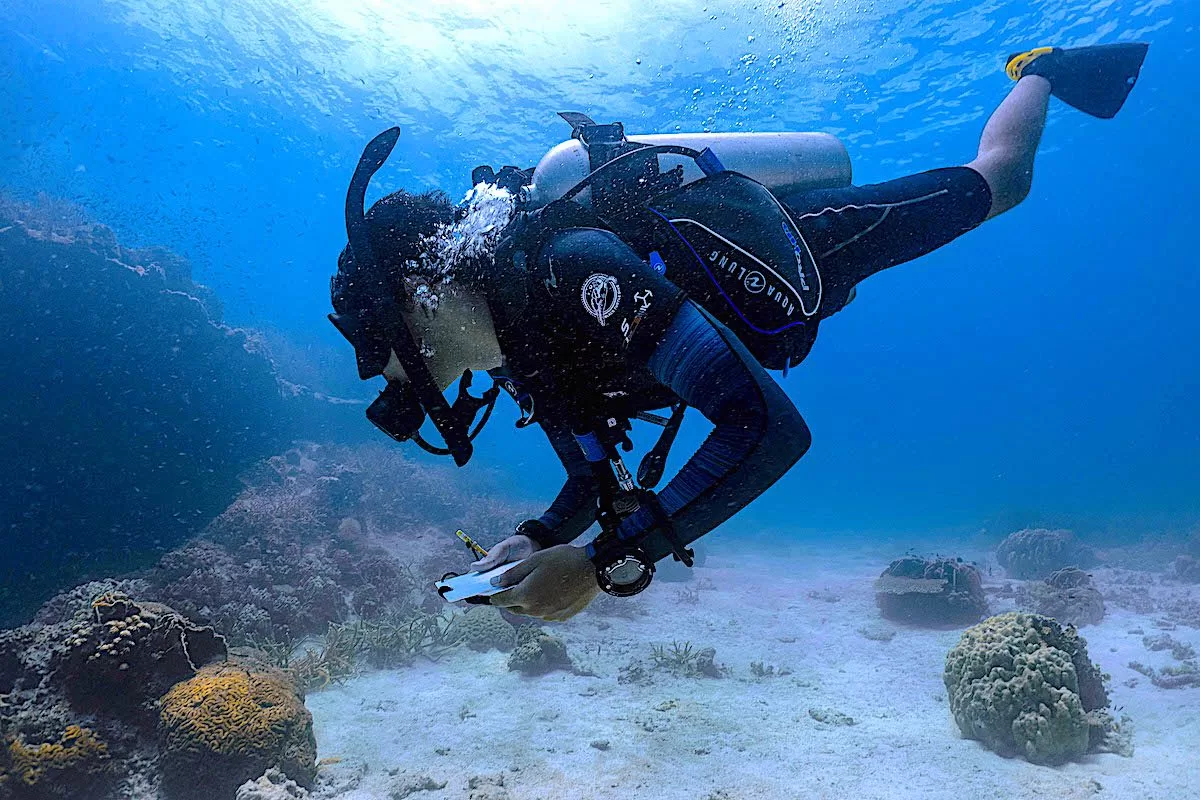
Included in Core Conservationist Marine Conservation Internship
- 10 Training dives on scuba
- 1 Snorkeling training session
- 3 Conservation Diver certifications including Ecological Monitoring Program (EMP)
- 1 CoralWatch Coral Health monitoring certification
- Black Turtle Core Conservationist certificate of completion
- Rental of full set of premium Aqualung scuba equipment
- FREE use of a Suunto dive computer
- Log Book
- Maximum 4 students per Conservation Diver Instructor
- Black Turtle Dive customer and environmental promise
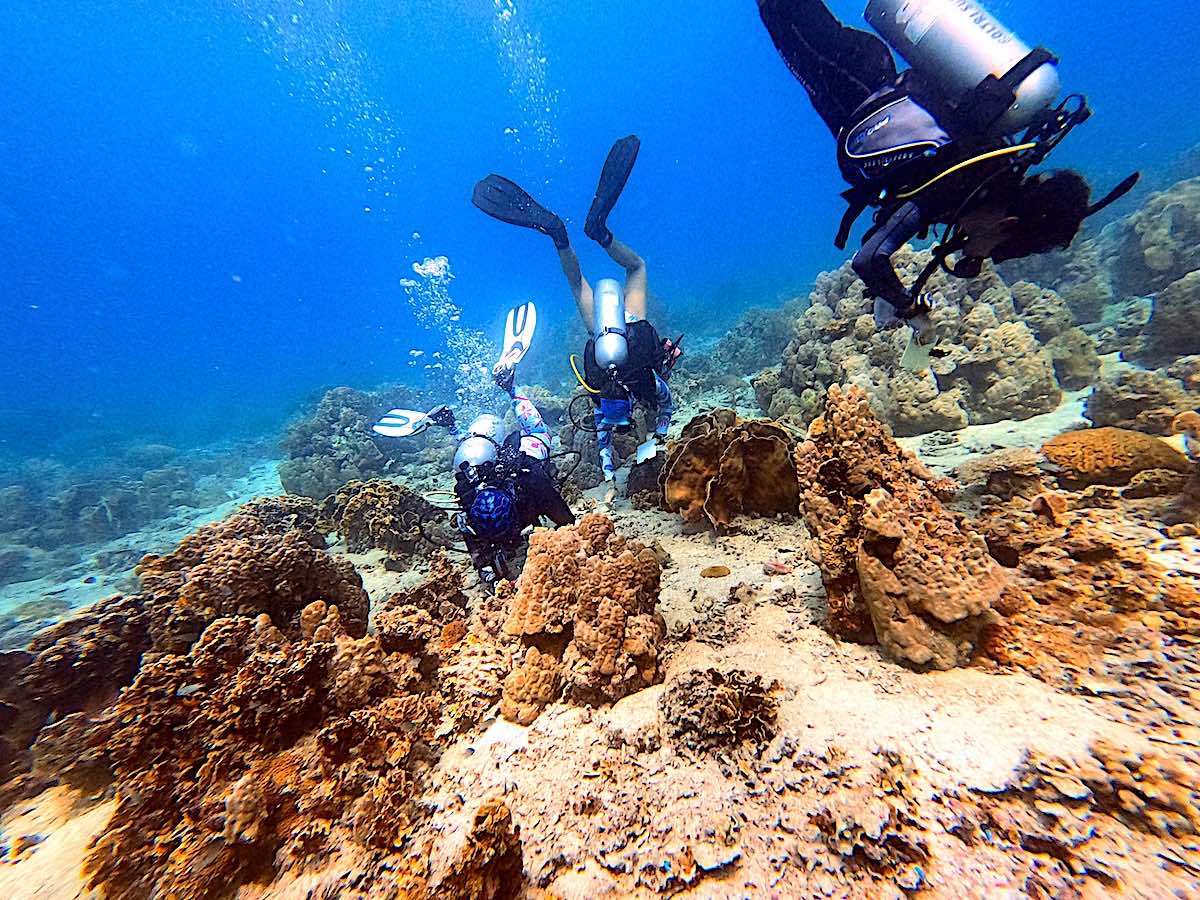
Core Conservation Marine Conservation Internship – Requirements
- 12 years old
- A certified Advanced Diver
- Have recent diving experience – we recommend completing a scuba review if you have not dived for 12 months
- Medically fit to dive
- Demonstrate diving ability and be proficient with buoyancy and self-awareness during a buoyancy assessment prior to any course specific component that requires you to dive in close proximity to the reef
- Have an interest in marine conservation and scuba diving
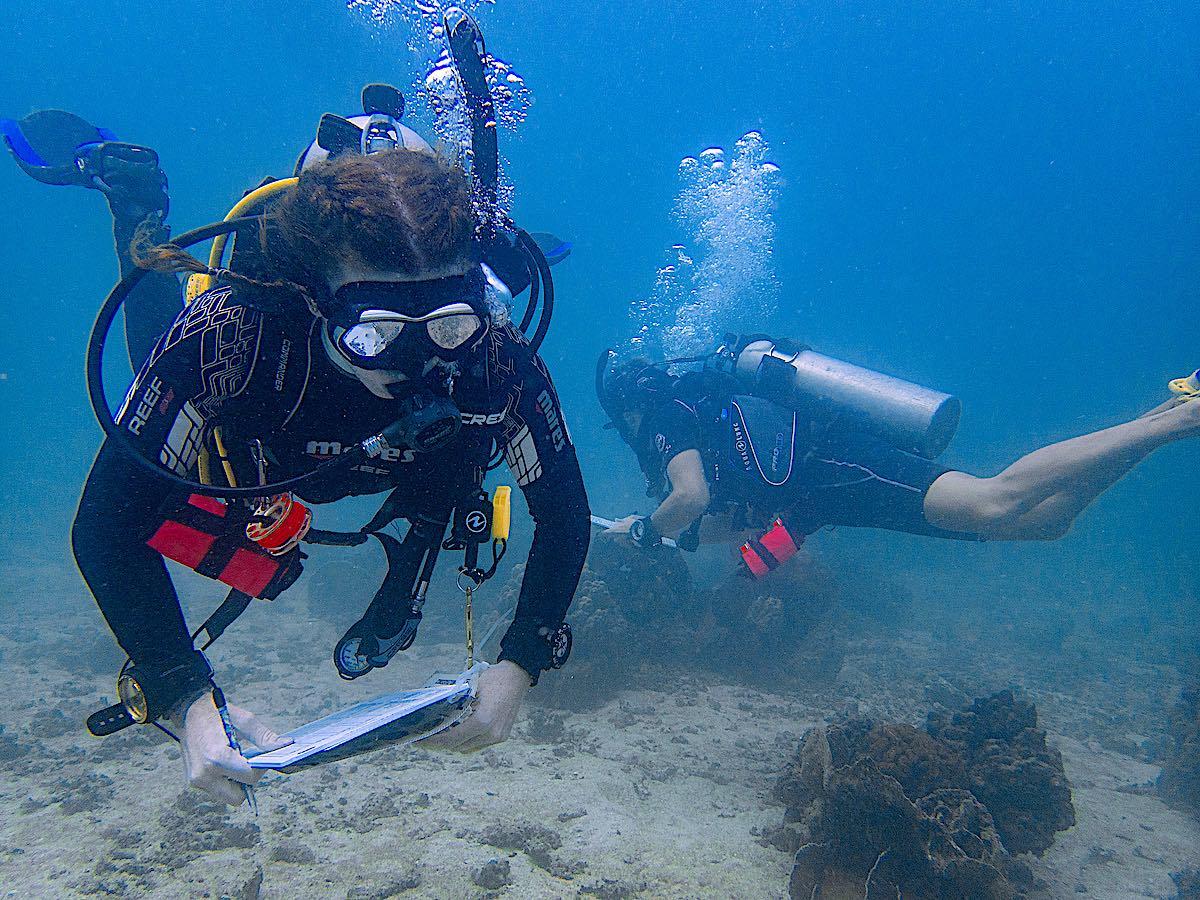
Koh Tao Core Conservation Internship Information
Our ‘Core Conservationist’ Marine Conservation Internship is an intensive 7-day program that requires students to be attentive, focused and prepared to commit to the program timeframe.
We do understand that travel itineraries and plans can change without notice, so we offer flexibility and can reschedule modules over a period of time based on availability in our schedule and the needs of each candidate.
Each module is designed to increase your awareness on the subject plus educate you on the significance and importance of each subject and how they relate to each other.
Knowledge development is introduced to support the in-water workshops, observational and scientific training dives.
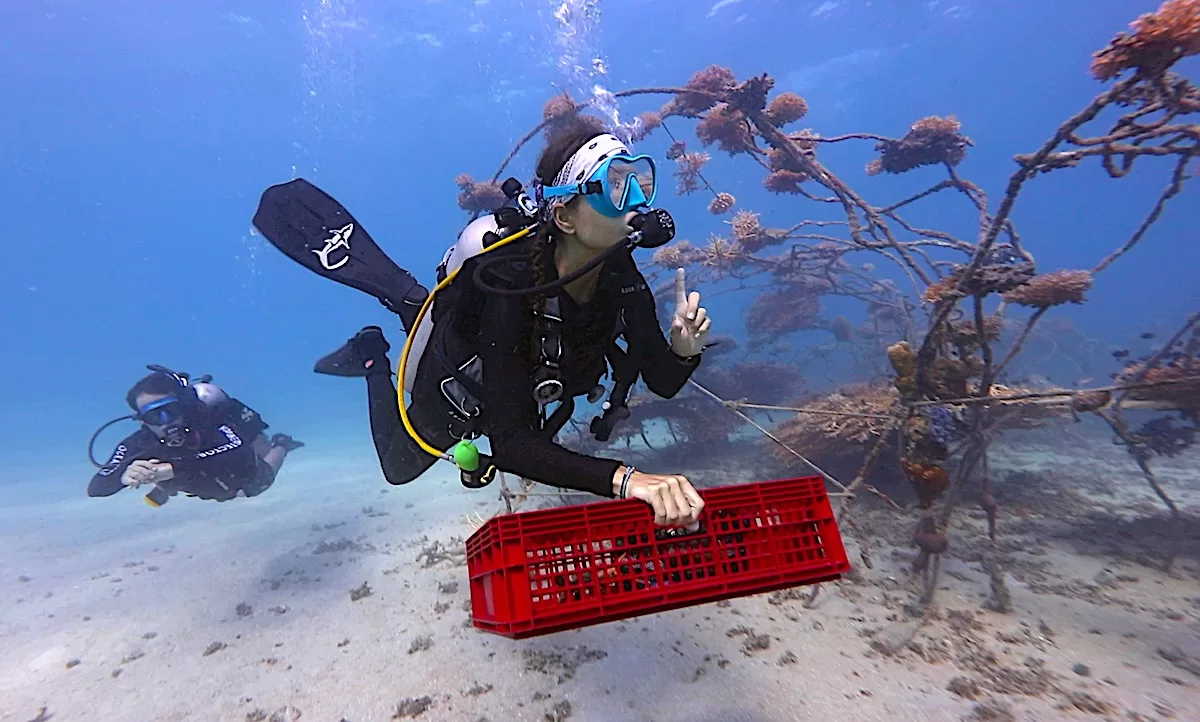
Coral Restoration and Artificial Dive Sites on Koh Tao
As one of the founding partners of perhaps the most successful artificial dive site on Koh Tao – Junkyard Reef, our team has extensive knowledge of the roles these types of dive sites have in alleviating pressure on local natural coral reefs.
Junkyard Reef was first conceptualized and established in 2006 with the deployment of its first structure, and over the following years partners Nathan Cook and Matt Bolton and a team of volunteers began the process of expanding the site.
Donations from local businesses enabled the team to expand Junkyard Reef using a combination of steel rebar welded structures and unused equipment. Soon, Junkyard Reef began attracting a wide variety of marine life in search of a new home.
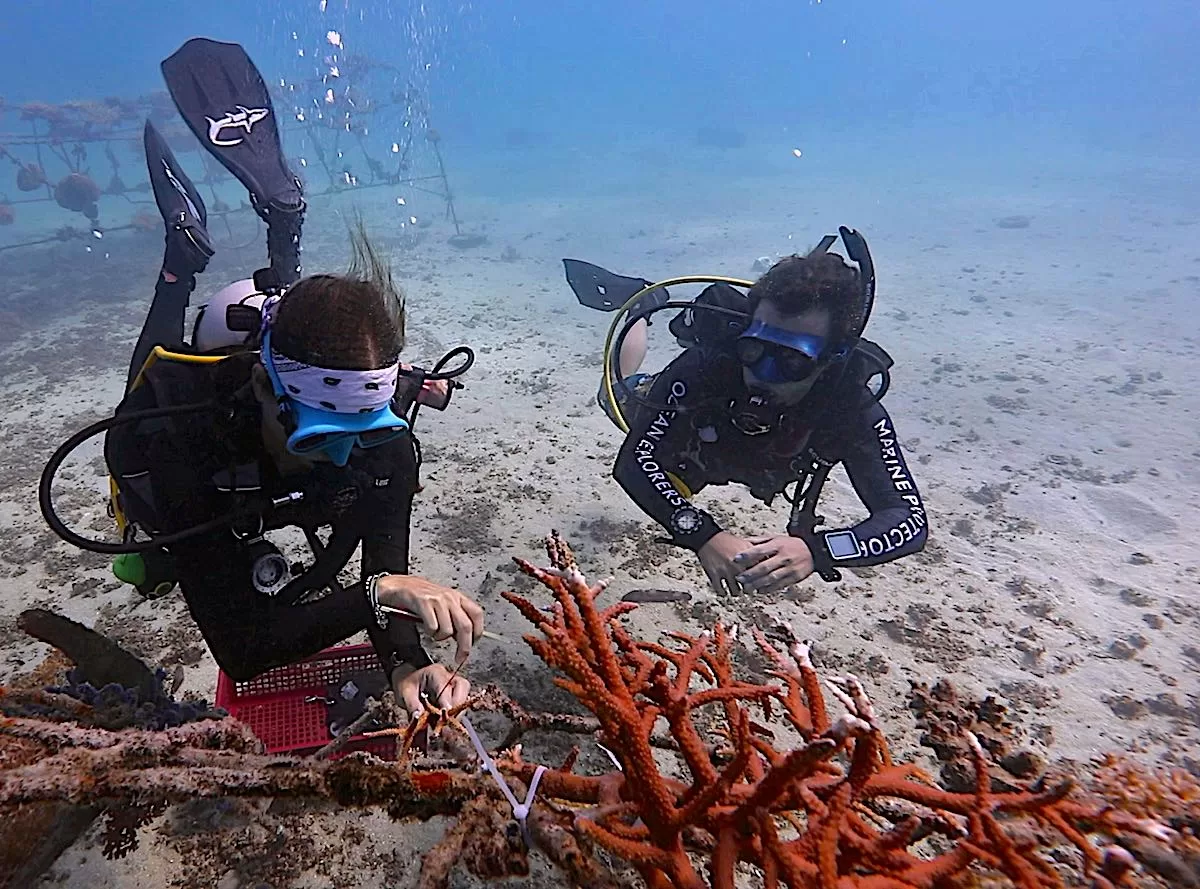
Junkyard Reef, Koh Tao
Over the years Junkyard Reef has benefited from working with several Thai based Universities and the DMCR (Department of Marine Coastal Resources).
Projects such as the establishment of coral nurseries and the introduction of more Giant Clams to the site, and welded structures, 3D printed structures and underwater art installations.
Our current team, managing the Junkyard Reef project are working closely with the DMCR to ensure new initiatives and expansion plans are in accordance with the stringent new regulations established by the DMCR.
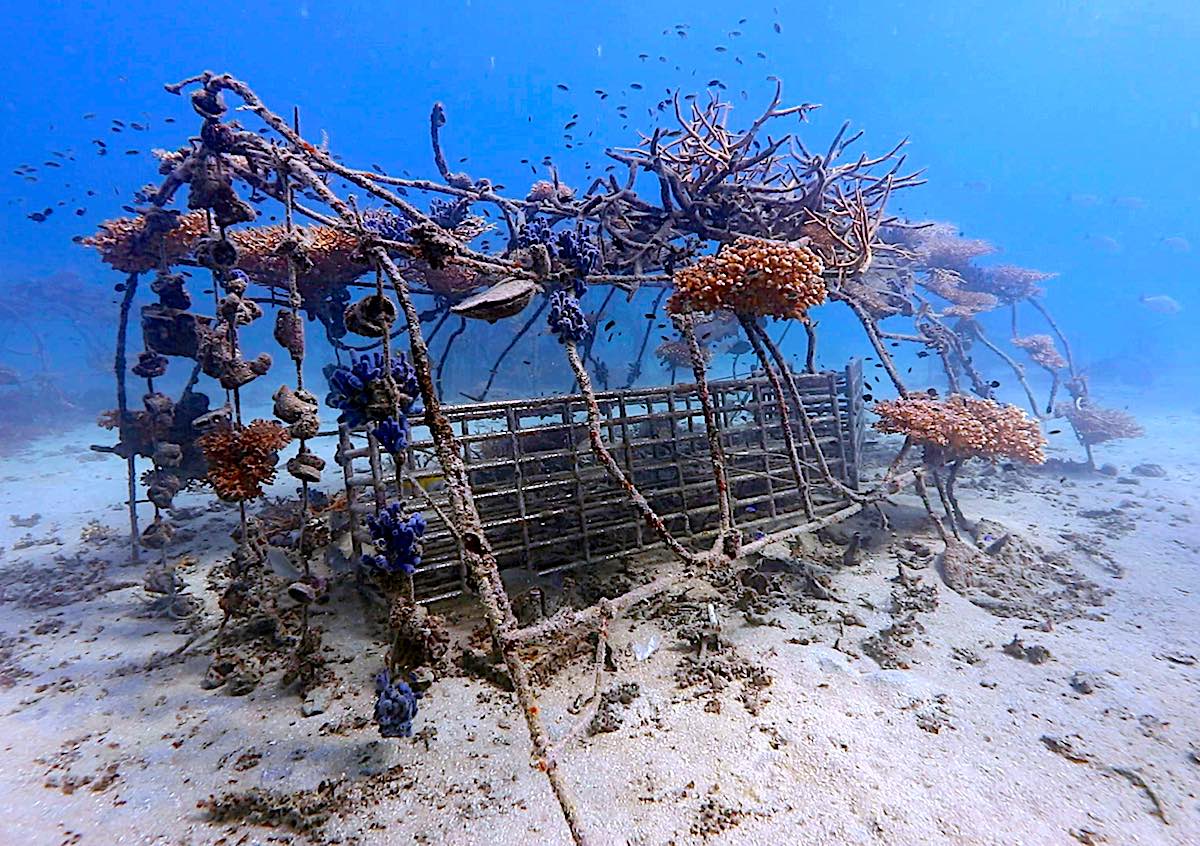
Flourishing Artificial Dive Site
Junkyard Reef is now a flourishing artificial dive site, visited on a daily basis by Koh Tao dive operators to help lower the stress on the natural dive sites around Koh Tao, and for them to be able to educate their divers on the value of marine conservation.
Some of the practical sessions during our Core Conservationist Internship will be conducted on Junkyard Reef to ensure our students can benefit educationally from this amazing local voluntary project.
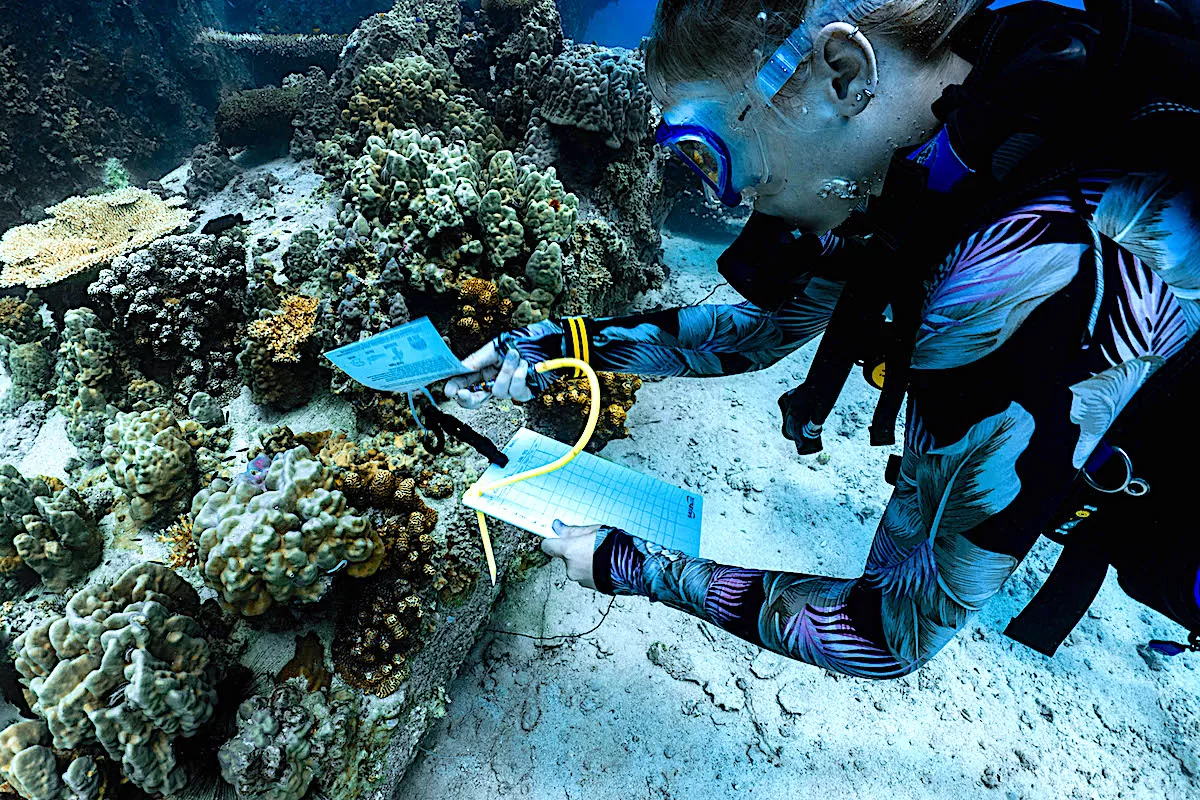
BOOK NOW 30,000 THB
What is the Core Conservationist Marine Conservation Internship?
- Fluid Mechanics Buoyancy Workshop
- Introduction to Reef Ecology
- Introduction to Marine Conservation on Koh Tao
- Fish Identification Dive
- Coral Safari Dive
- Conservation Diver Ecological Monitoring Program
- Coral Watch Coral Health Monitoring course
- Conservation Diver Coral Restoration Theory & Techniques course
- Coral Gardening Dives
- Conservation Diver Sea Turtle Ecology and Monitoring course
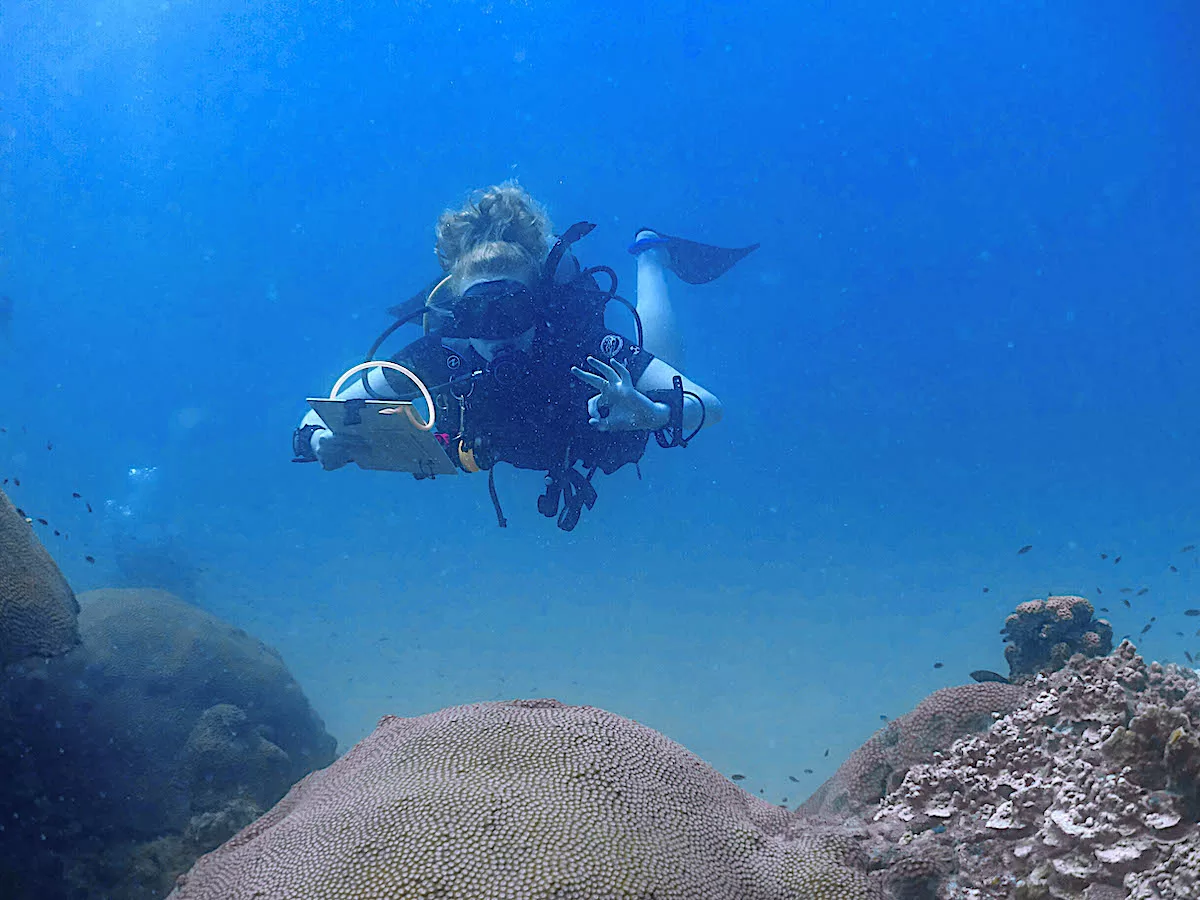
What you learn in Core Conservationist Marine Conservation Internship
- You will learn about coral reef ecology, the coral reef ecosystem, how it functions, the threats it faces and coral restoration theory and techniques.
- We will teach you about coral life cycles, the ecological differences between the asexual and sexual reproductive cycles in corals, and the importance of maintaining high biodiversity on the reef.
- You will learn survey techniques used by scientists to monitor coral reef ecosystems.
- You will learn the techniques and diagnostic features for identifying coral reef fish other vertebrates and coral reef invertebrates.
- How to assess substrate type, hard coral coverage, growth forms, coral health and bleaching.
- We will teach you how to perform invertebrate, fish and substrate surveys and how to input the data into the database.
- You will better understand the history and evolution of coral restoration techniques and the local regulations here in Thailand that govern coral restoration.
- You will learn the theory behind the use of coral nurseries and the practical application of locally and internationally developed techniques.
- You will participate in the practical steps of maintaining a coral nursery.
- You will perform a monitoring dive to take data on the health, growth, and diversity of a coral nursery.
- The ecology, evolutionary history, and threats to sea turtle populations around the globe.
- How to recognize issues with sea turtles and how to mitigate local threats to their health and survival.
- Various techniques to identify sea turtles and track their populations using photo documentation and how sea turtle sightings are coded and recorded into local databases
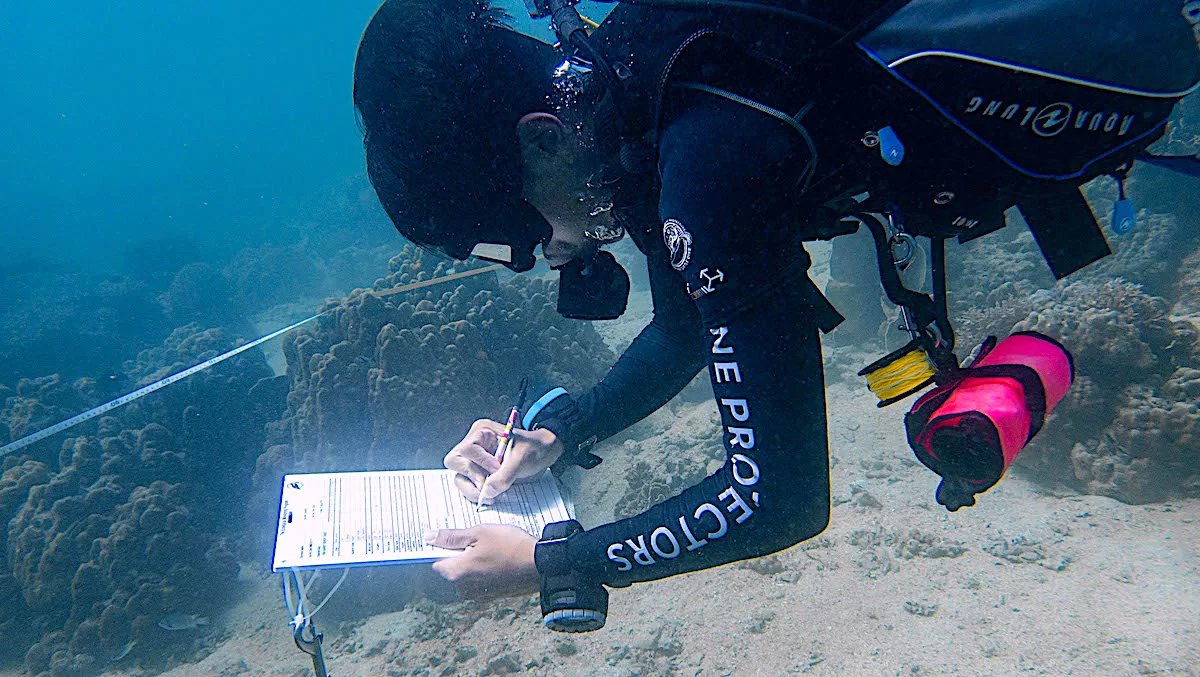
BOOK NOW 30,000 baht
7 Day Core Conservationist Marine Conservation Internship Schedule

Core Conservationist Internship Program Start Dates
This Marine Conservation Internship is designed for candidates who want to complete the Master Conservationist Marine Conservation Internship program but do not have the time.
Instead, you can participate in our 7 day Core Conservationist Internship, which is a shorter version of our popular foundational level Master Conservationist internship.
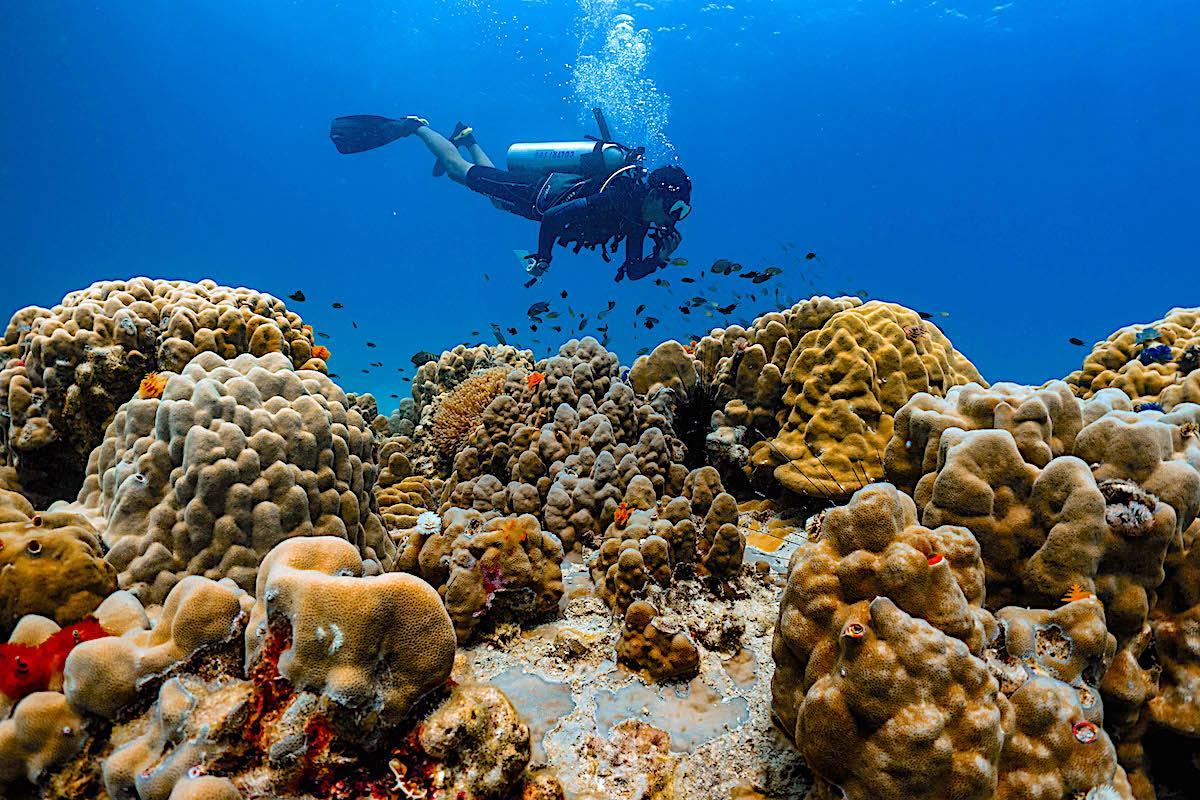
Become a Marine Conservationist
Our Scientific Diver Marine Conservation Internship follows on from our 14-day Master Conservationist program.
IF you do not have the time to complete the 14-day Master Conservationist Internship program and have 7 full days on Koh Tao, please e-mail us to check if we have availability.
If you do not have a full 7 days on Koh Tao and you are interested in completing some formal training in the field of Reef Ecology and Marine Conservation, we advise you to consider enrolling on our 4-day Ecological Monitoring Program.
Frequently Asked Questions
What is the Core Conservation Internship in Thailand?
Our Core Conservation Marine Conservation Internship is designed for individuals that would like to complete a Foundational Marine Conservation and Reef Ecology Internship and do not have 14 days required to complete the Master Conservationist Internship.
Scheduled over 7 consecutive days the Core Conservationist Internship is a marine science program that introduces divers to coral reef ecology.
The internship provides a great learning experience for anyone with an interest in learning more about the coral reef ecosystem, its inhabitants, and the relationships they have with one another.
This program also explores the threats our coral reefs are facing from factors such as climate change as well as some of the work we are doing in the field to reverse the damage that has been done.
The Core conservationist Internship consists of 10 modules. Each module has an academic section for divers to learn the theory and concepts and it offers in-water workshops and training sessions.
Our Core Conservationist Marine Conservation Internship covers various subjects.
- Marine Ecology & Coral Reefs
- Scientific Diving
- Fish Identification
- Substrate composition
- Invertebrate Identification
- Ecological Monitoring Program
- Coral Health Monitoring
- Coral Restoration Theory & Techniques
- Coral Gardening Dives
- Sea Turtles Ecology and Monitoring
What is the cost of the Core Conservation Internship on Koh Tao?
The cost of our foundational level Core Conservation Marine Conservation Internship is 30,000 THB.
The program is scheduled over 7 days and is suitable for divers on a limited time frame.
The Core conservation internship includes academic presentations, discussions and workshops on land, and in-water workshops and practical sessions out on the reef.
Upon completion of the Core Conservation internship, you will have completed 10 training dives and a training session snorkelling with sea turtles at Shark bay and collecting data.
How long does the Core Conservation Internship last for?
Our Core Conservation internship is scheduled over 7 days and is modelled on our popular foundational level Master Conservationist Marine Conservation Internship, and is specifically for individuals that do not have the time to stay on Koh Tao for the full 14 days.
The Core Conservationist consists of 10 specific modules, which are delivered through a series of Instructor led academic sessions, each with a corresponding in-water training dive.
This Marine science program is designed to introduce you to the living coral reef, its inhabitants, their relationships and the part they play in this fascinating underwater ecosystem.
What is the minimum age the Core Conservationist Marine Conservation Internship?
The minimum age to enrol on our Core Conservation Internship is 12 years of age.
Candidates wishing to complete this program should have a passion for marine conservation, be interested in marine science and have the ability to understand the scientific concepts we will explore during the internship.
The Core Conservationist Marine Conservation Internship is a scientific based education program that introduces divers to the coral reef, how it functions, and the threats it faces.
Can you get a certificate for the Core Conservation internship in Thailand?
Upon successful completion of the Core Conservation Marine Conservation internship, you will receive a certificate of completion that details each module of the program you will have covered.
You will also receive Conservation Diver certifications for the Ecological Monitoring Program (EMP), Coral Restoration Theory & Techniques and Sea Turtle Ecology and the CoralWatch Coral Health monitoring certification
